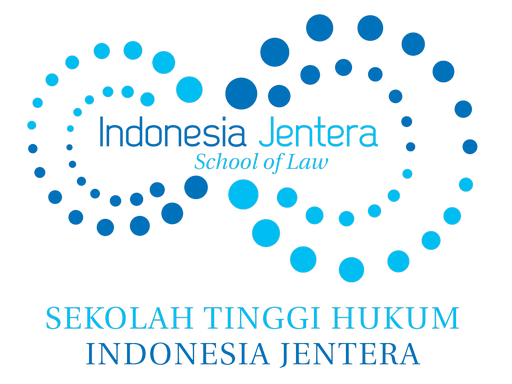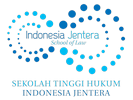Watching the escalation of resistance against the omnibus Job Creation Law and other legislation products, I cannot help but be reminded of the Dementors featured in the Harry Potter novels. Dementors are executioners of the notorious Azkaban prison who will suck up happiness, good memories and hope from anyone that step in their path.
What is left in a prisoner’s soul is the memory of the worst that they have experienced. In Harry Potter’s case, it is the memory of his parents’ murder at the hands of Lord Voldemort.
In a similar way, the country’s legislative process over the past year has swallowed the happiness and hopes of the people. In September last year, students took to streets in Jakarta, Yogyakarta, Bandung in West Java, Kendari in Southeast Sulawesi and many parts of the country in a movement dubbed #ReformasiDikorupsi (#ReformCorrupted) to reject a planned revision of the Corruption Eradication Commission (KPK) Law, Criminal Code and other laws accused of undermining democracy. A year went by and we have not changed much.
By the time you read this, the House of Representatives has passed not only the controversial omnibus Job Creation Law but other laws as well, including a revision of the Constitutional Court Law and the Mining Law, which were debated while the country was fighting the COVID-19 pandemic. Reflecting on this suspicious legislative process that gave birth to the key laws, what lessons can we learn?
Since 2018, the administration of President Joko “Jokowi” Widodo has practiced so-called executive illiberalism (Aspinall and Mietzner, 2019) or part of an “authoritarian turn” (Power, 2018). Despite the differences, the two definitions point to similar characters, which range from the erosion of democratic values by weakening the accountability of state institutions, to creating laws with minimum public participation.
It took the House two months to revise the KPK Law amid a wave of public rejection. Student rallies opposing the revision claimed two lives by live bullets and led to film director Dandhy Laksono and journalist Ananda Badudu being detained by the police for filming the protests.
One year on, we are experiencing déjà vu. Amid the pandemic, which has infected hundreds of thousands of people and killed thousands more, a number of bills were legislated with minimum public participation. The pandemic, which requires social distancing, was used to justify the lack of public access to the deliberation of the bills.
But it was the minimum public oversight that prompted policymakers to change the National Legislation Program as they pleased. The much-needed sexual violence eradication bill was dropped, while non-urgent bills like the Pancasila ideology bill was added to the list.
A controversial bill on the Bank Indonesia Law revision, which will undermine the central bank’s impartiality vis-à-vis the government, was also added out of the blue, so were the Attorney General’s Office and Family Resilience bills.
There are two takes if we analyze the current legislative and deliberation process. From the procedural point of view, inconsistency clearly marks our legislative planning. Postponing, revoking or adding new bills to the priority list does not follow a clear, let alone legitimate, basis.
For example, the House dropped the sexual violence eradication bill simply because it was “too difficult” to deliberate.
On the other hand, the House pushed for such a complex and contentious draft law like the omnibus job creation bill and eventually approved it.
Second, the deliberation process violates the House’s own internal procedure. This happened to the omnibus job creation bill, which was passed in a plenary without the presence of the Democratic Party and Prosperous Justice Party, which oppose the bill. According to Article 308 (3) of the House’s Internal Regulation, if no agreement is reached, a decision is made through a vote. The two opposing parties had questioned why the House did not choose the mechanism.
Another breach of internal procedure came when the House passed a revision of the Constitutional Court Law after only seven working days of deliberation from Aug. 24 to Sept. 1 by the House’s working group behind closed doors. The deliberation was informed at short notice, leaving the public in the cold.
When it comes to content, several aspects need to be pointed out. First, legislation content often overlaps one another. For example, the family resilience bill and the mother and child welfare bill contain items that are already addressed in the Social Welfare Law.
Second, there is no continuous and integrated planning for legislation. The Water Resources Law, the National Science and Technology System Law, the Sustainable Agricultural Cultivation System Law and the Haj and Umrah Law have been amended through the omnibus Job Creation Law, even though they were passed only last year. The former four laws contain articles that are deemed inconsistent with the Job Creation Law’s goal of spurring economic growth.
A more glaring example of the absence of planning can be found in the omnibus law, which seizes the authority to approve mining licenses from local governments and gives it to the central government. The recently passed revision of the Mining Law, on the other hand, allows the President to delegate the mining licensing power to the provincial governments. Ironically, the two bills were debated at about the same time.
Since one of the aims of the omnibus law is to centralize the licensing process, this issue may spark different interpretations unless there is a clear explanation.
If we check the bills proposed and deliberated at the House this year, it is hard to avoid the stamp of executive authoritarianism or illiberal turn. The practice of neglecting the procedural aspect of legislation defies the notion of a country that promotes the rule of law. The primary victims of this neglect is the public.
The bills, initiated either by the House or the government, testify a decline in the quality of democratic and good governance values. The private space of citizens will be invaded by the family resilience bill, the independency of the central bank in formulating monetary policies will be revoked by the Central Bank bill and the extension of Constitutional Court justices’ tenure through revision of the Constitutional Court Law may compromise the justices’ independence in deciding future cases.
Like Dementors, the legislative process sucks up our hopes for laws and policies that benefit the people. Instead, the process will result in legislation that threatens citizens’ rights as a parcel of our diminishing democracy.
In the Harry Potter novels, Dementors cannot be killed, so all that we can do is to keep them as far away from us as possible with magic spells. Let’s hope our critical voices can have the same magic effect.
The bills, initiated either by the House or the government, testify a decline in the quality of democratic and good governance values.

